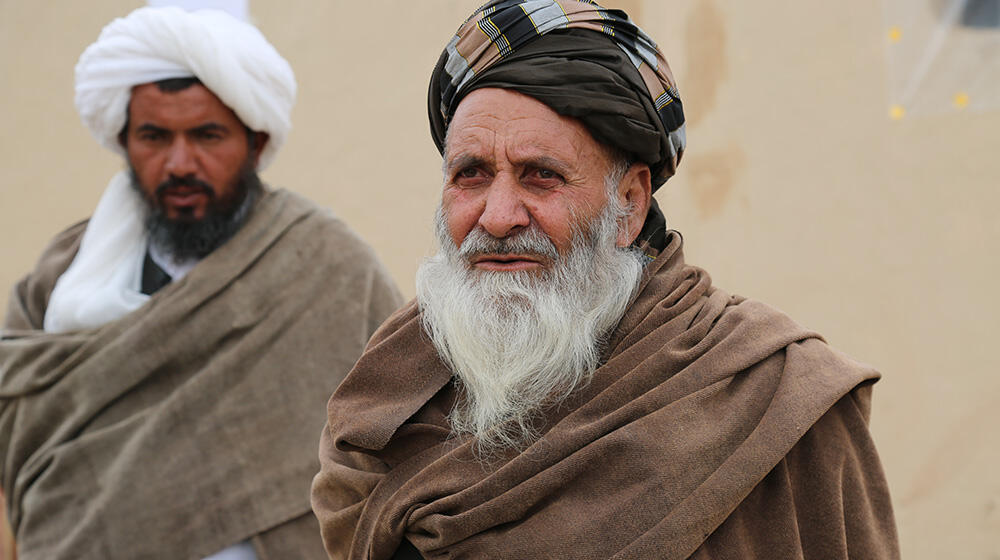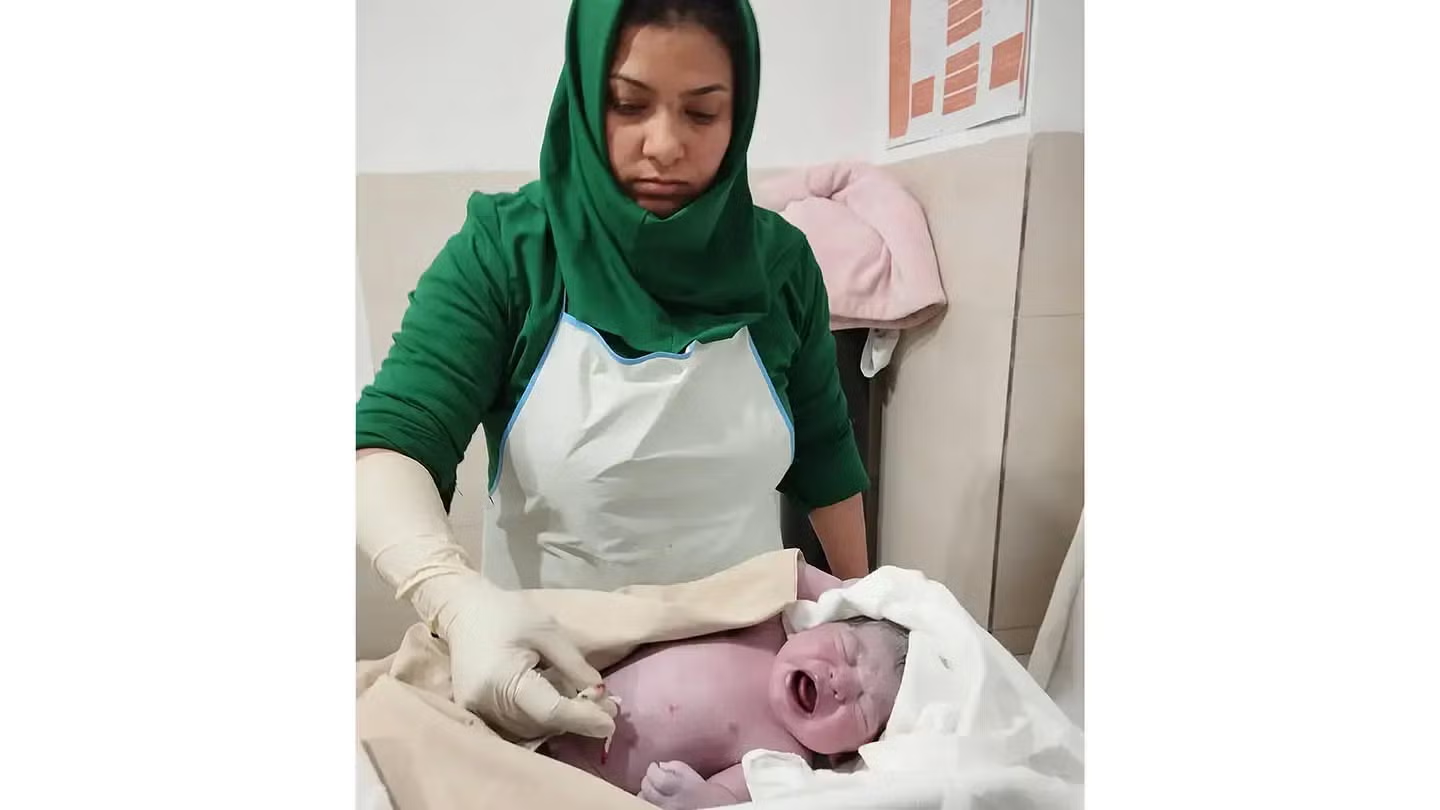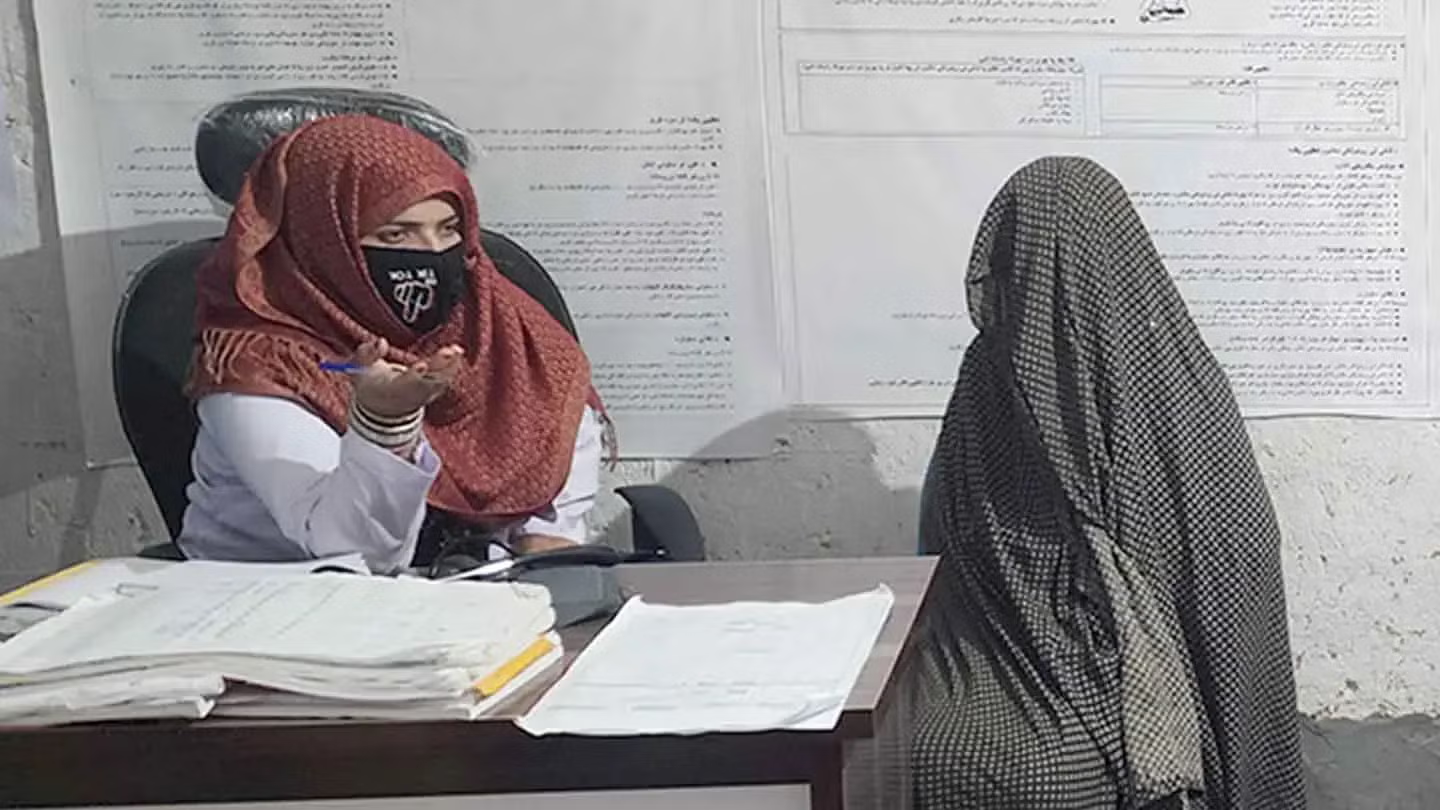Helmand, Afghanistan – In a country that is facing extreme poverty and an unprecedented economic crisis, Haji Zaman Shah did the selfless act of donating a parcel of his land for the construction of a Family Health House (FHH) that will provide access to a birthing facility and other health services in his community.
Mr. Zaman is a farmer from Nad-e-Ali district, where he lives with his nine children, including six sons who are also farmers, and three daughters. “We have lived in this village for a long time. We work in the fields nearby. That’s what we and our fathers did in this area for a long time,” he says.
When UNFPA expanded its FHH program to Helmand in 2022 through the support of the Special Trust Fund for Afghanistan (STFA), its NGO partner, BARAN, coordinated with local communities to find the best locations for the FHHs and the land to build them on. The FHHs are community-based health facilities initiated by UNFPA to provide access to reproductive, maternal, newborn, child and adolescent health care for people in remote and hard-to-reach areas of Afghanistan (also called the “white areas”).
Finding a location is easy but finding someone willing to donate the land is a challenge. Without employment opportunities, Afghans would venture into agriculture if they owned any land at all.
One day while visiting a mosque, he saw a group of people gathered in a meeting. “I heard them talking about establishing a new health facility in our village,” he says. He approached the group and learned that land is needed to build the health facility.
“This is a project for humanity,” he says with a smile. “As a man of honor, I could not disappoint these people from my village. I saw this as a golden opportunity to bring a health facility to the village for the first time.”
Mr. Zaman stepped forward and offered a portion of the land he owned for the construction of the FHH. “I said that my half Jareeb (approximately 800 square meters) land is theirs for as long as this Family Health House is running, and people are getting benefit from it.”
The FHH is the model developed by UNFPA and supported by STFA in collaboration with IOM and UNDP. IOM will oversee the construction while UNDP will provide the solar power panels. UNFPA will ensure provision of maternal health services, select young women from the village that will be trained as midwives, equip the facility with medicines, supplies and equipment and ensure the quality of service delivery.
Mr. Zaman also allowed one of his daughters, who expressed interest in becoming a midwife, to enroll in the Community Midwifery Education (CME) program, which trains midwives for two years to serve in the FHHs.
“It was a very difficult decision for us to send our daughter away for training for a long time. But since I initiated this change, I vow to do whatever it takes to have this health facility established in my village," he adds. His daughter is one of the 32 students now enrolled in the CME program for Helmand.
Afghanistan has the highest maternal mortality ratio in Asia and the Pacific region. Every two hours a woman dies from preventable pregnancy or childbirth complications. Establishing the FHHs makes maternal health services more accessible to women in the “white areas,” where the nearest health facility is about three hours’ walk away. These are areas where maternal deaths commonly occur due to lack of access to skilled and emergency maternal care.
-Text by Ehsanullah Popal





